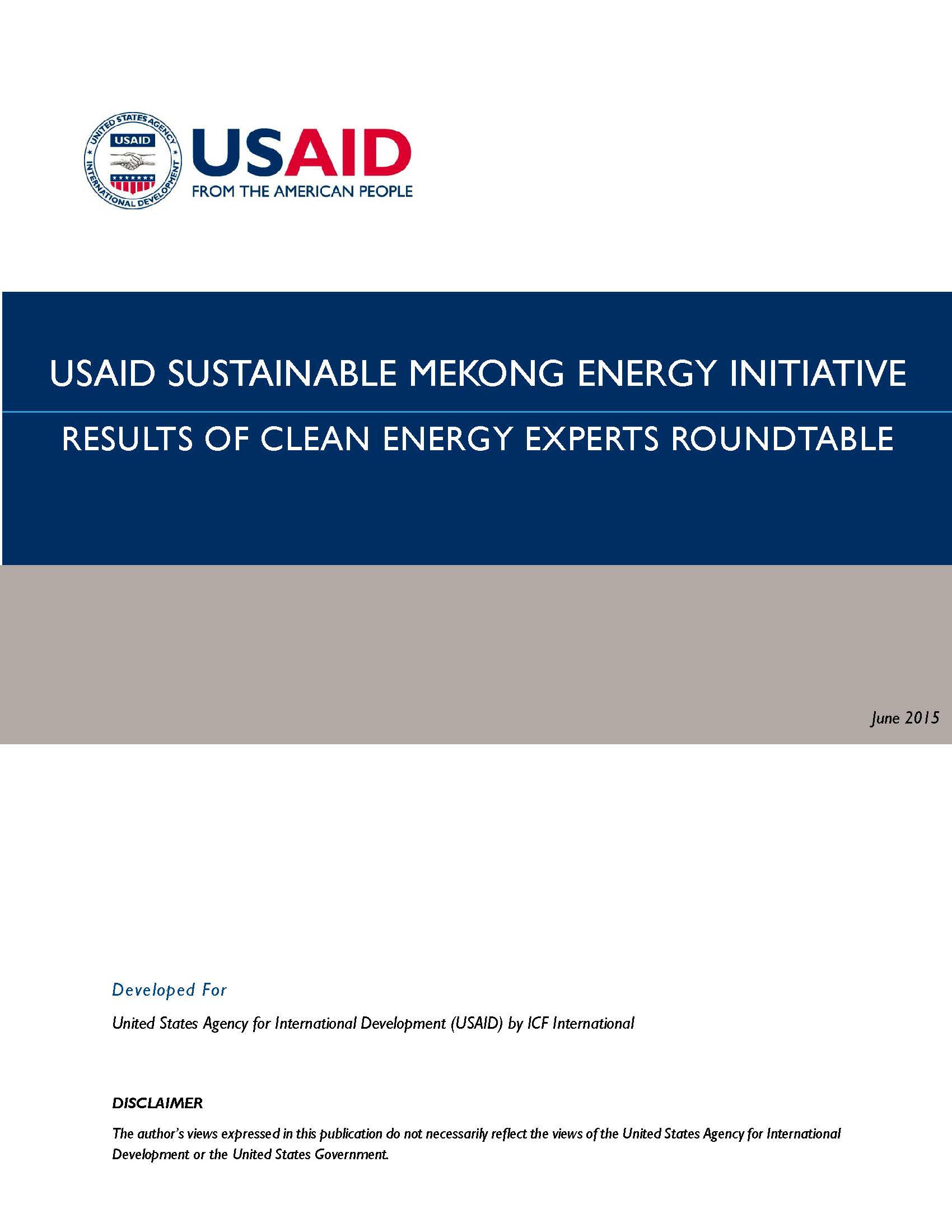Executive Summary
Economic growth is driving the need for dramatic increases in energy production in the Lower Mekong1 region, most of which is based on conventional energy sources: coal, natural gas, oil, and large-scale hydropower. The impacts will be far-reaching, both for global greenhouse gas emissions as well as for regional eco-systems, human health, fisheries and livelihoods throughout the Mekong basin. While Lower Mekong countries expect to triple their renewable energy capacity in solar, wind and biomass in the next 10 years, they are starting from a low baseline of only 3,500 megawatts (MW), therefore increased capacity would still only account for a small percentage (less than 10%) of installed capacity.
To better inform how best to influence the regional approach to increased use of clean energy, a group of regional experts with domain expertise in clean energy, energy efficiency, and the environment participated in a roundtable discussion in April 2015. This report summarizes the key outcomes of those discussions and is designed to provide input on next steps in the regional approach to increased clean energy capacity.
Experts agreed that energy security, energy access and energy supply and demand were the most critical energy issues facing the region. After further elaborating on the key components of the regional landscape, experts identified the potential for regional integration, availability of renewable energy technologies, and availability of financial mechanisms as some of the greatest opportunities for the region. Conversely, experts considered fragmented policy, coordination across ministries, lack of an independent regulatory body and the lack of integrated and transparent planning to be the most significant barriers.
Given the political, environmental, and socio-economic factors in the Lower Mekong, local experts worked together to create possible pathways for implementing Energy Efficiency/Renewable Energy (EERE) at scale in their region. Although a wide variety of strategies were presented and discussed, experts agreed that stakeholder involvement in several key arenas (including business partners, government agencies, legislative bodies, utility providers, research institutions, and media partnerships) was essential to the success of EERE initiatives.
USAID initiated this roundtable to be a platform where experts can benefit from exchanging their ideas on the critical energy issues in the region while concurrently providing expert guidance for USAID’s participation in the Sustainable Mekong Energy Initiative.








Comment
Make a general inquiry or suggest an improvement.